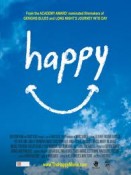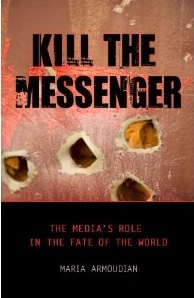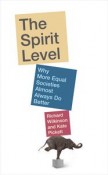Q&A: Psychedelics in 2012 – Charles Grob MD, James Fadiman – Author
Written on July 25th, 2012 |
Aired 07/22/12
Did you know that LSD is being tested as a treatment for alcoholism? Or that psilocybin is being taken to ease the anxiety of late stage cancer patients? In government-sanctioned studies.
Psychedelic substances have been used for ceremony and as medicine for millennia. Such properties were being cultivated and studied in the US in the 60s and early 70s until widespread and careless use of psychedelics and sensational media reports produced a backlash. I will talk with CHARLES GROB MD about the latest scientific research, including his own ground-breaking studies. And with JAMES FADIMAN about the vision, ideas and advice in his book, PSYCHEDELIC EXPLORERS: Safe, Therapeutic and Sacred Journeys.
CHARLES S. GROB, M.D, Director of the Division of Child and Adolescent Psychiatry at Harbor-UCLA Medical Center and Professor of Psychiatry and Pediatrics at the UCLA School of Medicine, conducted the first government approved psychobiological research study of MDMA, was the principal investigator on a research project in the Amazon studying the visionary plant brew, ayahuasca, and investigated the efficacy of psilocybin to treat anxiety in terminally ill patients. A founding board member of the Heffter Research Institute, devoted to fostering research on psychedelics, he is the editor of Hallucinogens: A Reader and co-editor with Roger Walsh of Higher Wisdom: Eminent Elders Explore the Continuing Impact of Psychedelics.
JAMES FADIMAN did his undergraduate work at Harvard and his graduate work at Stanford, doing pioneering research with the Harvard Group, the West Coast Research Group in Menlo Park, and Ken Kesey. A former president of the Institute of Noetic Sciences and a professor of psychology, he currently teaches at the Institute of Transpersonal Psychology in Palo Alto, CA, which he helped found in 1975. He is the author of PSYCHEDELIC EXPLORERS: Safe, Therapeutic and Sacred Journeys.
Q&A: ROKO BELIC’S, documentary – HAPPY
Written on February 2nd, 2012 |
Aired 01/29/12
HAPPY. Are you happy? What makes you happy? Does money make you happy? Kids and family? Your work? Do you live in an environment that values and promotes happiness and well-being? Do you expect you’re going to get happier? How?
ROKO BELIC’S documentary HAPPY explores these sorts of questions. It weaves the latest scientific research from the field of “positive psychology” with stories from around the world of people whose lives illustrate what we’re learning.
The basic approach to the pursuit of happiness taken by many of us and by society in general isn’t delivering. We know more than we ever have about what science can tell us about happiness. And we have access to more diverse models and worldviews than ever before. This is a good time to ask some basic questions.
Q&A: MARIA ARMOUDIAN, Journalist/Radio Host
Written on August 12th, 2011 |
Aired 08/08/11
KILL THE MESSENGER emerged from MARIA ARMOUDIAN's studies into the causes of genocide, war, peacemaking, democratization, and the protection of human rights and the environment, while she was working on her Ph.D. at the University of Southern California, as well as during her work as a broadcast journalist and public official. Looking across conflicts and policy successes and failures, she found that media (and media professionals) were among key factors in determining political outcomes, including matters of life and death.
Written in five parts, KILL THE MESSENGER shows how media fomented rage and genocide in Rwanda, the Holocaust and the Bosnian war; how they helped bring peace in the Northern Ireland Conflict and the war in Burundi; how media contributed to democratization and the protection of human rights in South Africa, Taiwan, Mexico, and Senegal, and how they aided both the destruction and rebuilding of democracy in Chile. In its final case study, Kill the Messenger explores the media's role in the fate of the world, as journalists disentangle the issue of climate change for the public.
The book's forward was written by Tom Hayden.
Q&A: Paula Caplan, Author/Psychologist/Playwright
Written on August 4th, 2011 |
Aired 07/31/11
PAULA CAPLAN, a clinical and research psychologist, is currently Affiliate at the DuBois Institute and Fellow at the Women and Public Policy Program at the Kennedy School of Government, both at Harvard University. She has been a Lecturer at Harvard and a Professor of Applied Psychology and Head of the Centre for Women's Studies in Education at the Ontario Institute for Studies in Education. She is the author of 11 books, including Don't Blame Mother: Mending the Mother-Daughter Relationship; You're Smarter Than They Make You Feel; They Say You're Crazy; and her latest, When Johnny and Jane Come Marching Home: How All of Us Can Help Veterans. Paula is also a playwright.
Q&A: RICHARD WILKINSON & KATE PICKETT, Authors – The Spirit Level: Why More Equal Societies Almost Always Do Better
Written on February 5th, 2010 |
Aired 01/31/10
RICHARD WILKINSON & KATE PICKETT authors of an important new book: The Spirit Level: Why More Equal Societies Almost Always Do Better
In the UK, the Guardian says The Spirit Level "might be the most important book of the year, and The New Statesman named it one of the top ten books of the past decade.
Based on thirty years' research, The Spirit Level shows that unequal societies are bad for the well-off as well as the poor, when it comes to health and social problems, child well being, life expectancy, infant mortality, obesity, educational scores, drop out rates, illegal drug use, mental illness, homicide, incarceration, CO2 emissions, recycling, social mobility, innovation, and levels of trust.
The good news: If all these ills are related to one measure - income inequality, then, decreasing inequality should be the central goal of our politics because we can be confident that it works.
RICHARD WILKINSON has played a leading role in international research on inequality. He studied economic history at the London School of Economics before training in epidemiology, and is Professor Emeritus at the University of Nottingham Medical School and Honorary Professor at University College London.
KATE PICKETT is a senior lecturer at the University of York and a National Institute for Health Research Career Scientist. She studied physical anthropology at Cambridge, nutritional sciences at Cornell and epidemiology at Berkeley before spending four years as an Assistant Professor at the University of Chicago.
